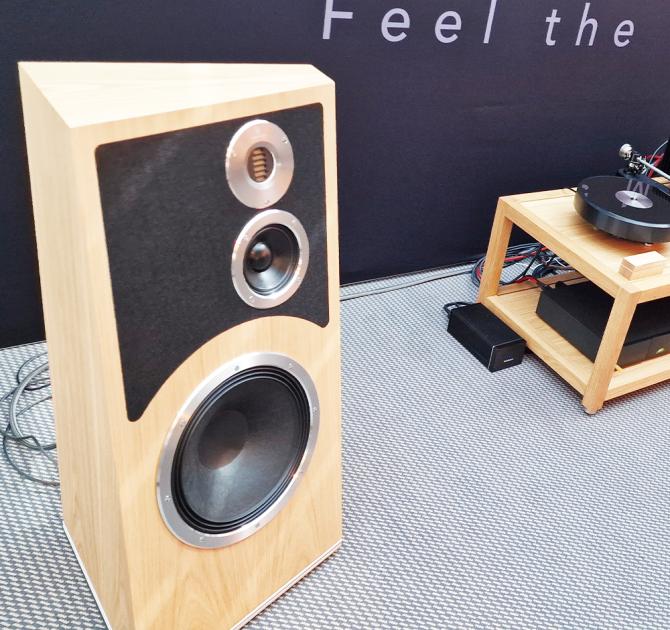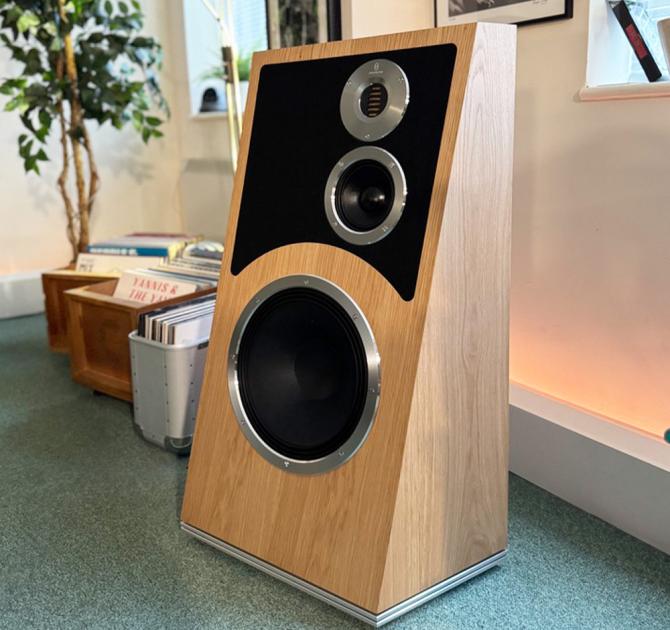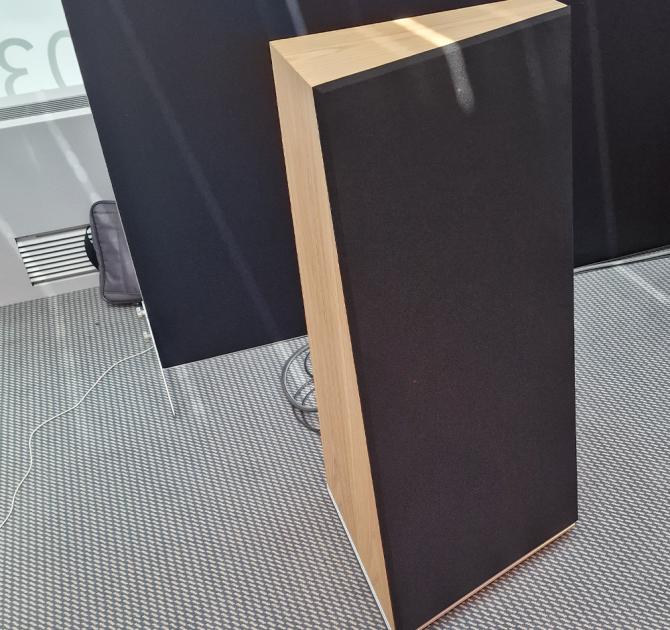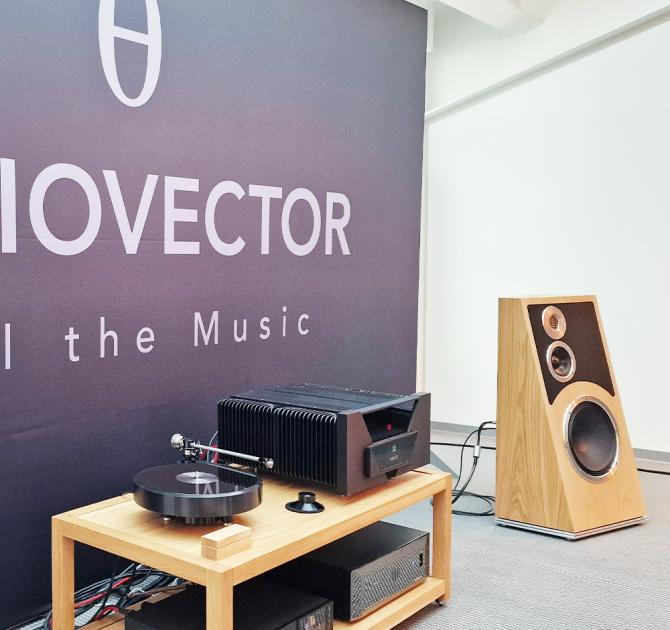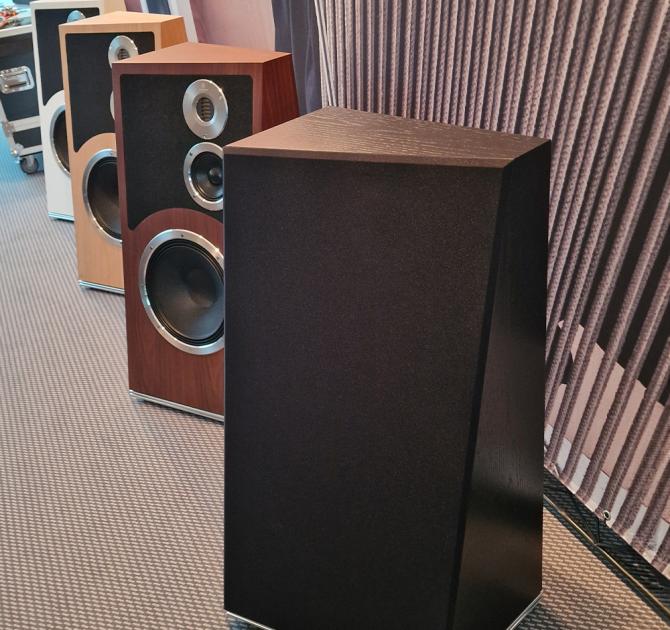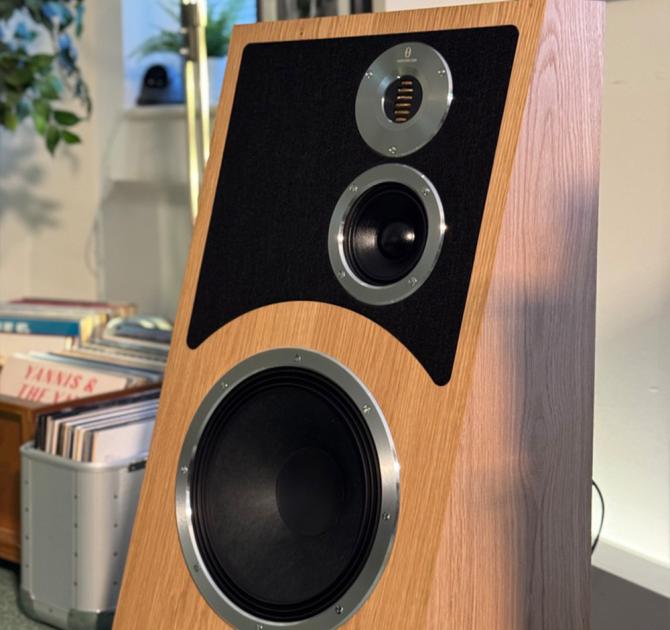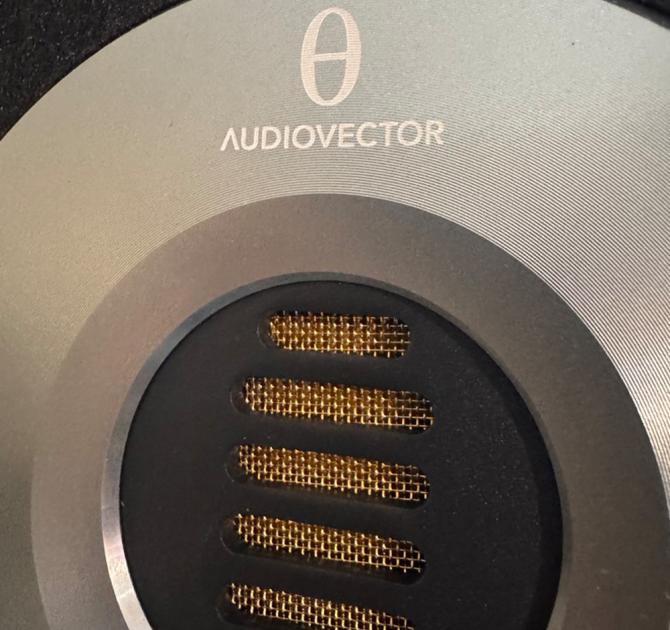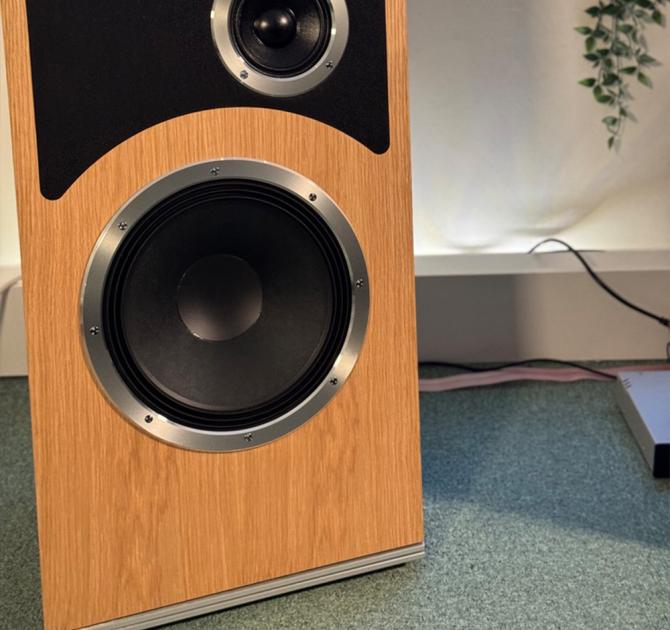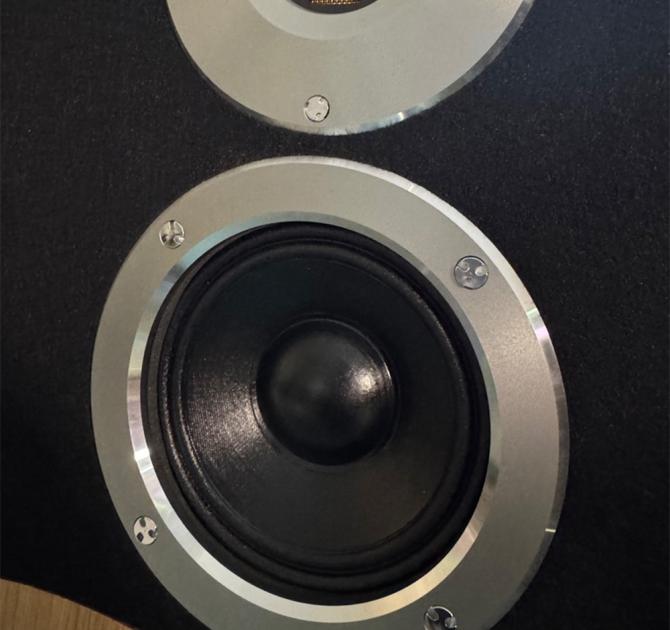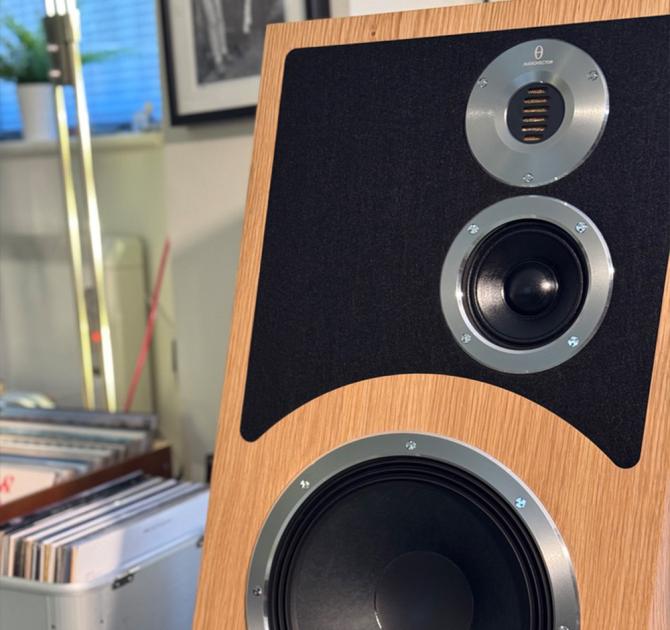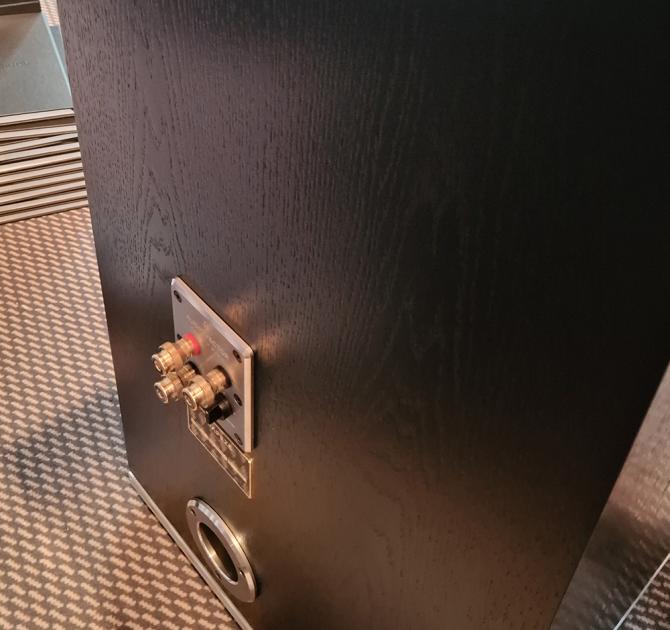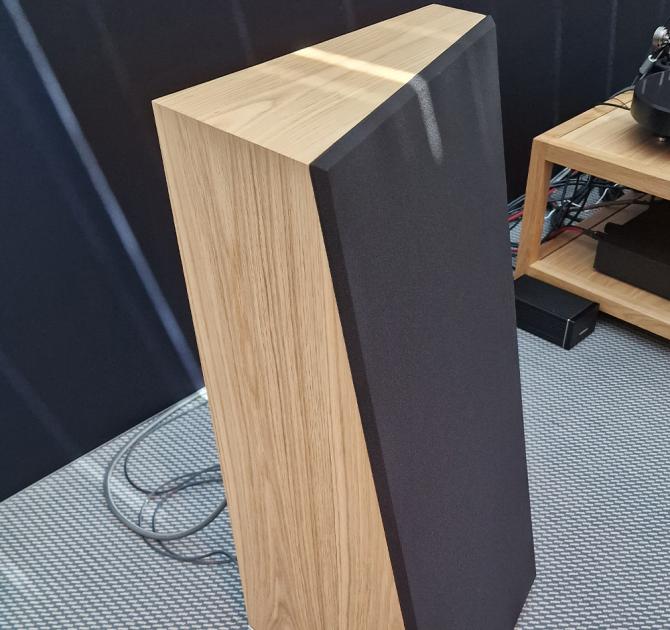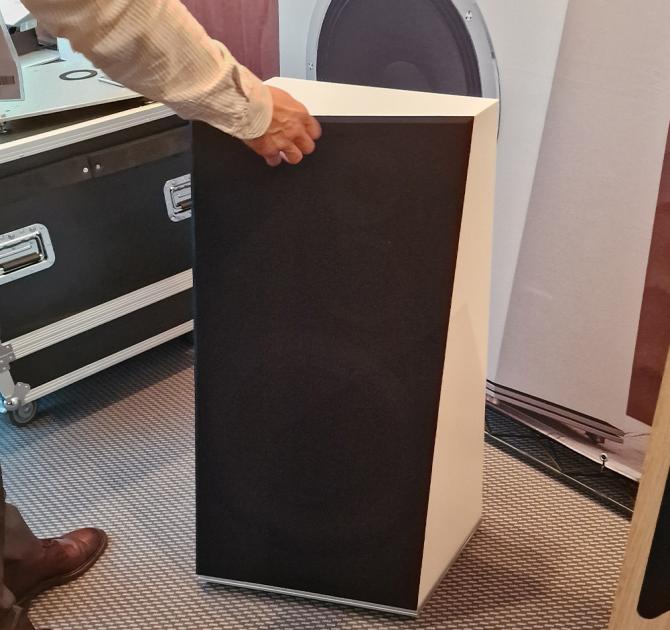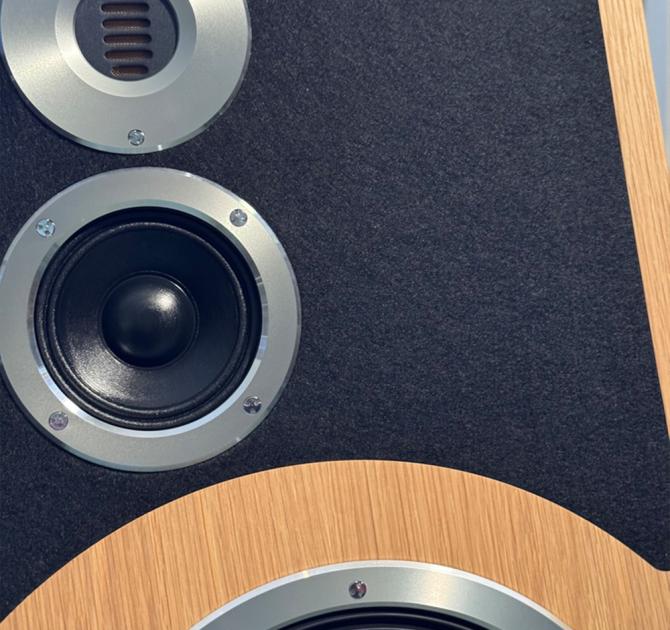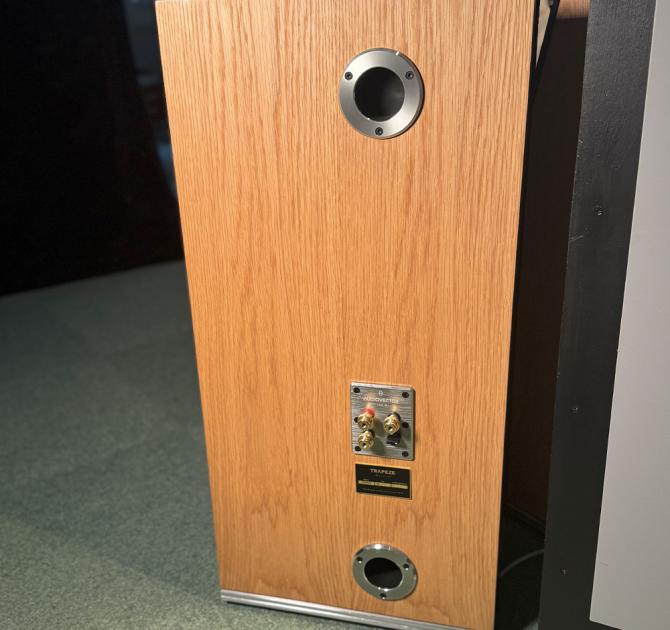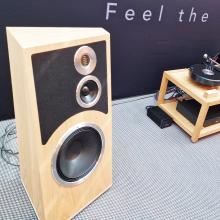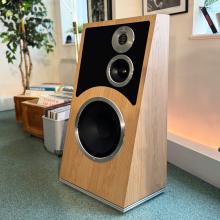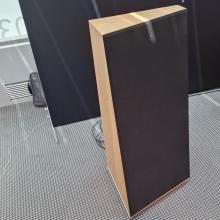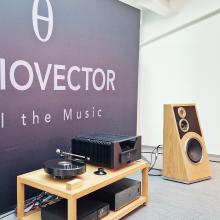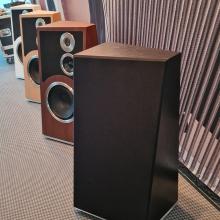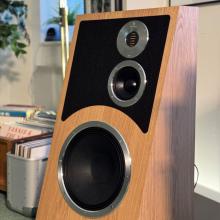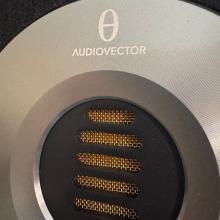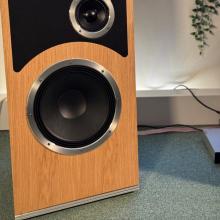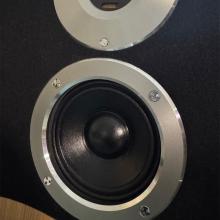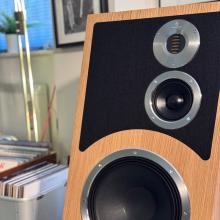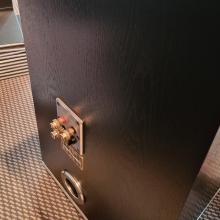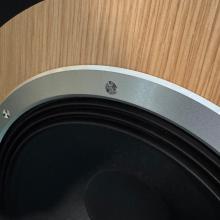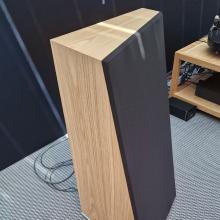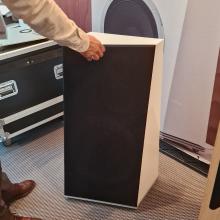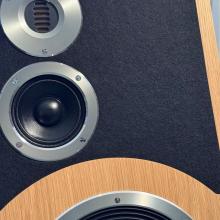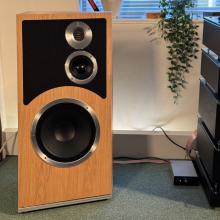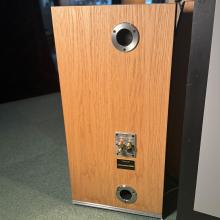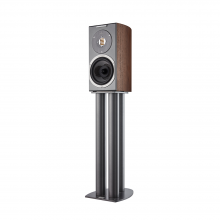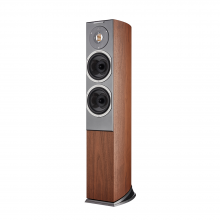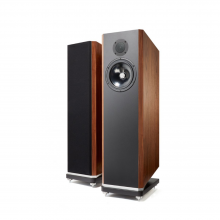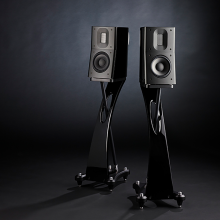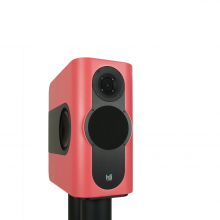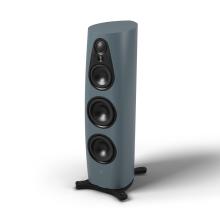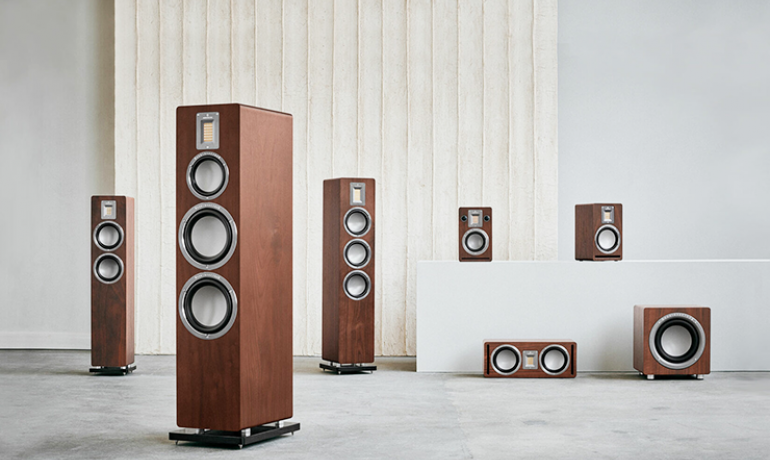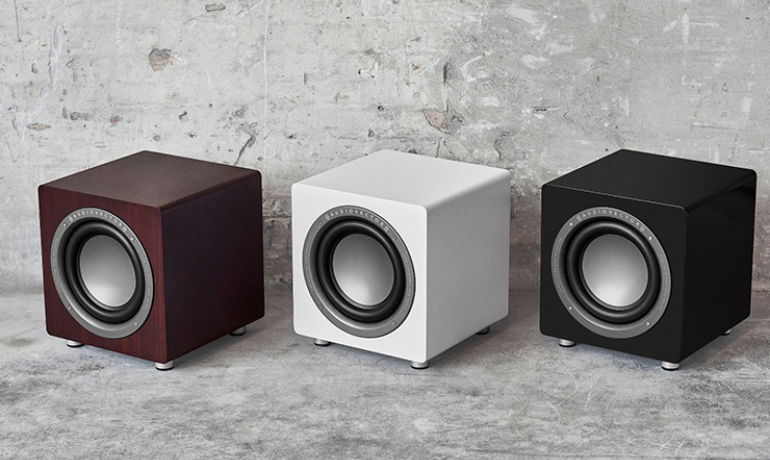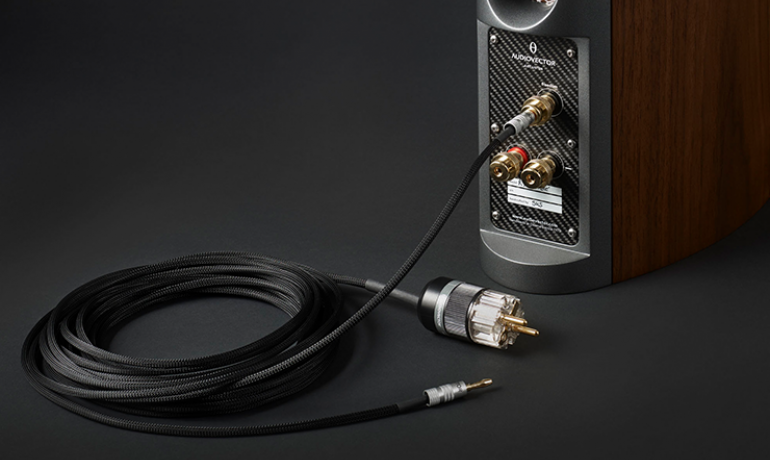Audiovector Trapeze Ri Loudspeaker
In 1979 Ole Klifoth launched the Trapeze. In doing so, he created the blueprint for all Audiovector speakers to come – including the pioneering focus on linear dynamics and linear phase through a true 6 dB per octave crossover. Fast forward 45 years and the new Trapeze Reimagined is based on the same principles as the original heritage model. And brought up to date with the very best, most innovative technology available.

A homage to the company’s very first loudspeaker. The embodiment of Audiovector's passion, innovation, and love of music. And quite simply, a thing of beauty. A 3-way floor standing design, the Trapeze Reimagined features a proprietary 12-inch high-power mid/bass driver. A 5-inch-high speed midrange. And the only AMT-tweeter on the market that stays true to the original design from audio genius Dr. Oscar Heil.
The three drivers combine to achieve an even power, flat frequency response to match the famous Brûel & Kjaer ideal room response. A diffraction absorbing felt area around the treble and midrange drivers helps to create a rare and natural soundstage: prepare to be transported to the atmospheric heart of a live event. The low frequency tuning adds weight and drama to any music.
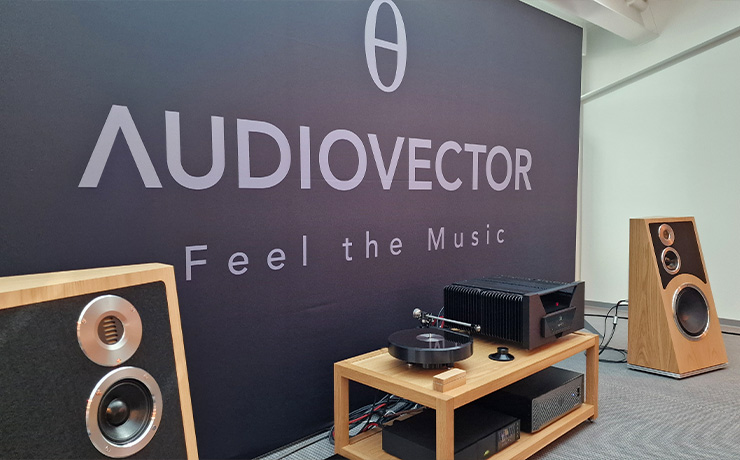
The extremely low distortion of the bass driver allows unusually natural and dynamic vocals as well as a beautifully rich sound without boom or bloom that just sounds so right. No problems with bass, midrange, or treble. Just an open, rich, musical, and rhythmic reproduction of all kinds of music in all kinds of settings.
Trapeze Concepts
DCC – Diffraction Control Concept
A thick layer of natural felt around the mid-and treble drivers absorbs reflected energy and make the drivers act as point sources. This results in a holographic 3-dimensional soundstage.
DMD - Double Mechanical Decoupling
The Trapeze Reimagined uses a 2 layer aluminum plinth with a combination of built-in decoupling via carbon steel ball bearings and stylish and efficient machined Audiovector spikes. This optimises the speaker/floor interaction by reducing distortion to give a clean and precise sound.

NSW - No Standing Waves
The original Trapeze pioneered the No Standing Waves principle. Standing waves are the enemy of perfect sound, because they introduce both distortion and energy loss. The lopsided Trapeze cabinet avoids these problems by creating the perfect conditions for the drivers.
DFA – Damping Factor Adjustment
All amplifiers are different. Some have a high damping factor, some have a low damping factor. Audiovectors DFA principle makes it possible to adjust the speakers to the amplifiers characteristics. This brings us one step closer to the perfect sound.
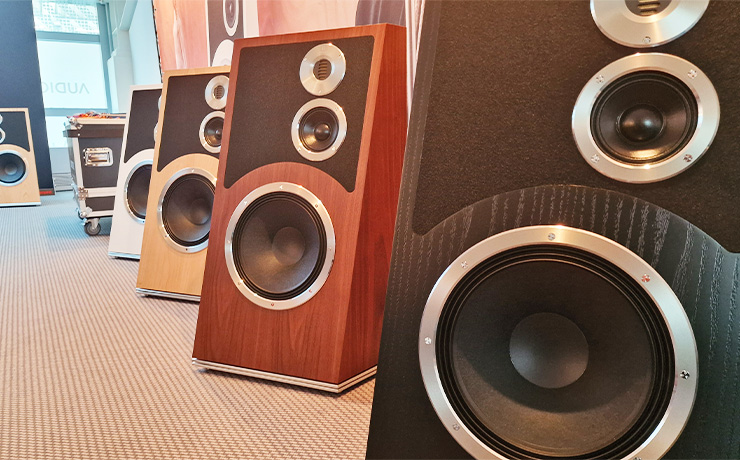
Individual upgrade concept
A technology which gives you the option to upgrade your speakers whenever you want. You can upgrade to a higher level or if your loudspeakers are replaced with a new improved model. This means that all Audiovector speakers are future proof.
Low compression concept
A technology which allows the membranes of the drivers to move freely under all kinds of demanding conditions. This means that your Audiovector speakers will stay faithful to whatever signal they are fed – no matter how loud and complicated the material.

Soundstage enhancement concept
This concept allows you to choose where you want to be positioned when you listen. This technology means the soundstage stays intact, wherever you are positioned. The sound fills a room in an incredible manner, giving the listener a realistic “live sound” experience.
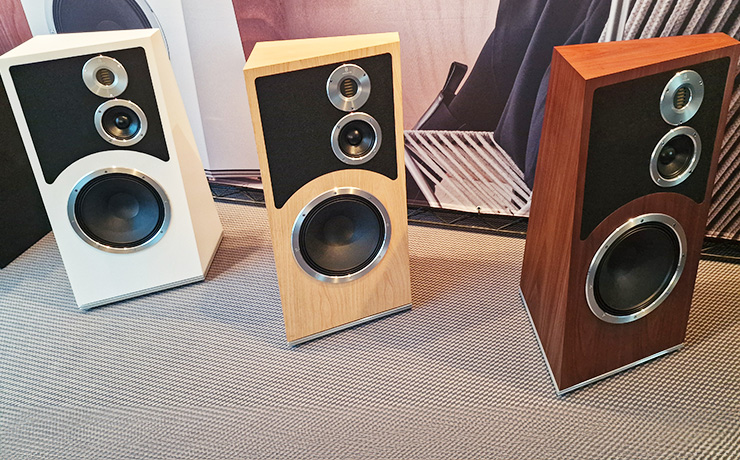
No energy
Drive units sound best if they do not have to ‘carry’ the weight of the speaker cabinet to which they are fixed. This is a question of transient response. Inspired by the solutions from the Audiovector R 11 Arreté, we have managed to use the NES concept to achieve an even higher level of realism and open soundstage from our speakers.
NCS molecular realigment
Natural Crystal Structure is one of the many invisible technological improvements of our Arreté models. By freezing components down to -238° C, the copper molecules realign themselves to their natural positions and will therefore reduce resistance. The result is a clear and more detailed sound quality.

Freedom of grounding
Audiovector Freedom is a revolutionary grounding technology, which addresses the movement induced distortion of and between the drive units in a loudspeaker. The currents running between the chassis are being processed and dealt with through a new separate crossover, which routes the signal to the ground terminal of your wall socket or your grounded mains distribution unit. These currents cause coloration and distortion between the drive units. By balancing and filtering these through a dedicated separate filter and by offering the possibility of connecting them to earth/ground, Audiovector achieves a clean, very accurate, much more realistic sound with low noise floor.
Colours and Veneers
Audiovector only use carefully selected real wood veneers.
They also offer a wide variety of custom painted finishes which are painted in Denmark.
Standard matte finishes:
- Nordic Oak
- Black Ash
- Italian Walnut
- White Silk
Black cloth grille included.
Custom piano colours on request.
- frequency response: 23-53 kHz
- sensitivity: 92,5 dB/W/m
- average impedance: 8 Ohms
- minimum impedance: 6.5 Ohm at 20 kHz
- sensitivity: 88 dB SPL at 1m for 2.83Vrms input
- distortion: <0.2% THD at 90 dB SPL
- power handling: 450 W
- crossover frequencies: 500 and 3.000 Hz
- bass unit: High Power 12-inch with 4” Voice coil
- mid unit: High resolution 5” Neodynium
- HF unit: 3800 mm2 Audiovector SEC AMT
- terminals: High Current Gold-plated copper/ brass binding posts for 4mm plugs or spades
- dimensions cm (footprint): height 87.5, width 42, depth 43.5





